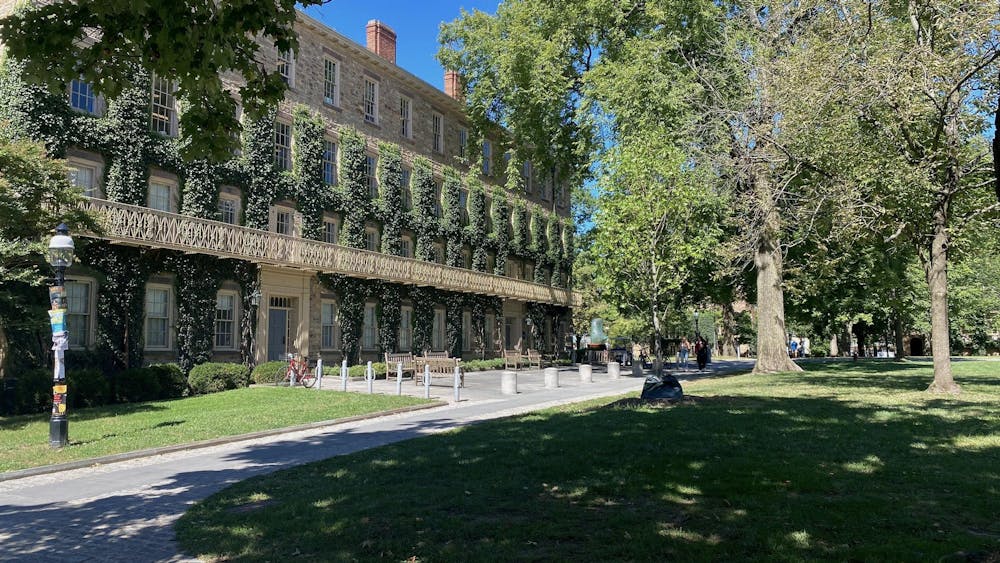Incoming first-years spend several hours the summer before matriculating clicking through educational modules on alcohol use — AlcoholEdu for College — and sexual violence prevention — Sexual Violence Prevention for Students. Their tediosity, however, discourages students from truly engaging with the material, and their asynchronous nature does not hold students accountable to internalize the information they present. Rather, the trainings become grudging tasks to speed through despite their importance for learning how to safely navigate alcohol, substance use, and intimacy, especially on a college campus. Princeton should remove the online modules in favor of keeping such education exclusively on-campus, in-person, and Princeton-specific, so students can better retain knowledge that helps keep them — and those around them — safe.
Many students, without the motivation to learn, will simply skim through hours of online material. Studies show that asynchronous instruction results in poorer information retention. As demonstrated by the mass email reminders advertising how prompt completion of these modules “contributes to your residential college’s score in the ‘Clash of the Colleges,’” the University seemingly recognizes that students would not voluntarily complete these modules without an external incentive.
This ineffective presentation trivializes the importance of information like safe alcohol consumption. The attempt by the University to gamify the modules feels tone-deaf considering the serious nature of the material. If material is presented as busywork, readers will treat it as such. But student health is not busywork. Communicating its importance could prevent an unnecessary hospital visit, or worse.
The modules themselves are counterproductive, including misleading and overly generalized sections. For example, AlcoholEdu misrepresents Princeton’s policy when approaching punishment for illegal cannabis use as unnecessarily punitive, threatening the loss of scholarships, campus jobs, and even student housing. Princeton’s cannabis policy, in reality, is much less severe than the module presents, starting with a reprimand at first offense, followed by disciplinary probation.
AlcoholEdu presents misleading instructions about vaping, failing to adequately address the dangers of vaping with language like “even though vaping products are marketed as a way to help quit smoking, data on their effectiveness is mixed,” which does not fully convey the highly addictive and carcinogenic nature of vaping. Some of these issues derive from AlcoholEdu not being Princeton specific. For example, the module teaches that about 50 percent of incoming college students have consumed alcohol, while according to The Daily Princetonian 2028 Frosh Survey, 60 percent of incoming Princeton students have consumed alcohol before arriving on campus.
Moreover, the asynchronous modules overlap with programming during orientation week which cover similar topics surrounding substance use and interpersonal relationships. As such, the modules are unnecessary, only serving to breed boredom, apathy, and skewed conceptions of substance use at Princeton. They should be removed in favor of presenting the same material in an exclusively on-campus, in-person, Princeton-specific format. Any sort of educational programming, safety-related or not, should be focused on quality over quantity and not simply serve as lip service to student safety — which gives the impression that the University does not truly care for student well-being, only the appearance of doing so.
Princeton’s synchronous programming around alcohol and intimate relationships also covers the material much more engagingly and effectively than their online counterparts. For instance, one of the most memorable orientation week events is “The Way You Move” play, an original play produced by the Sexual Harassment/Assault Advising, Resources and Education (SHARE) office and performed by students that portrays potential issues and solutions regarding interpersonal relationships. Creative, relatable, and engaging formats like this play convey safety-related information in ways that students actually remember. Online modules lack this crucial engagement.
In addition, discussions facilitated in small groups are particularly effective at encouraging everyone to actively listen and participate — an important interactivity that the modules also cannot have. It’s essential for students to discuss these issues with the very peers they might look to for help, so they hold each other accountable to learn skills and resources like Counseling and Psychological Services (CPS).

It’s important to note that there are many useful aspects of the online trainings that should be retained in in-person events. One of their strengths is an emphasis on student voices themselves — students in the modules offer practical safety strategies such as carrying around a Sharpie to tally how many drinks you have consumed, sharing location with friends when going out, and always trying to intervene when in doubt of a friend’s safety. Mini, interactive, choose-your-own-adventure scenarios were additional effective elements of the modules that can be incorporated into in-person activities. Factual details like how blood alcohol concentration (BAC) varies across different individuals should also be emphasized. But discussing these topics face-to-face with fellow students is a more direct, memorable, and effective way to learn than staring at a screen before having met any of your classmates.
When trying to educate students on such a large scale, especially on important matters like safety, it is not enough to offer unengaging digital content that is divorced from the Princeton experience. We must consciously craft programs that take into account how students learn best, present accurate and concise information, and therefore truly orient students to college life.
Ava Chen is a first-year contributing Opinion writer intending to study English or psychology. She is from Wellesley, Mass. and can be reached at ac5214[at]princeton.edu.









